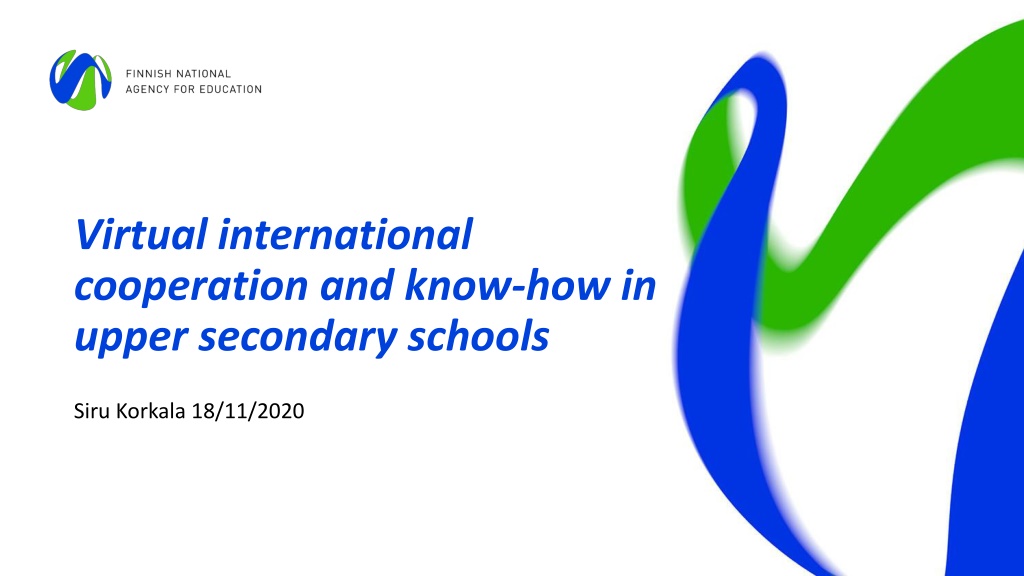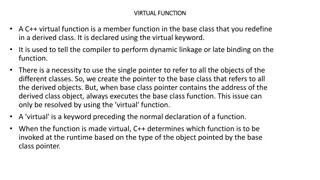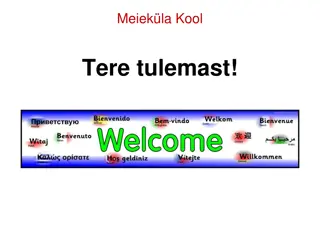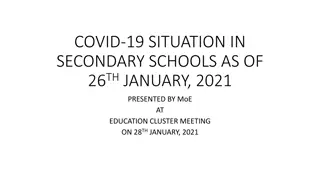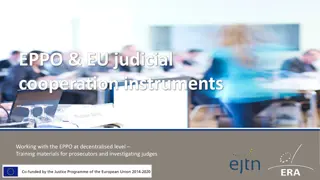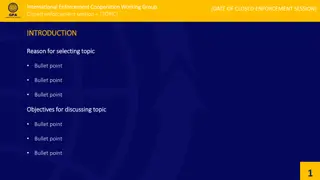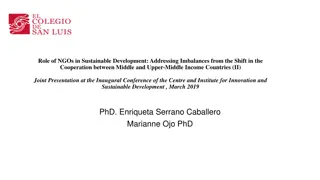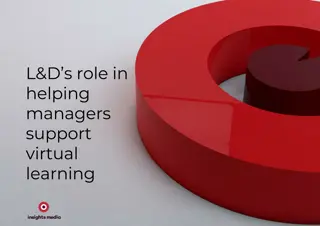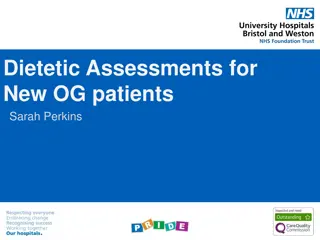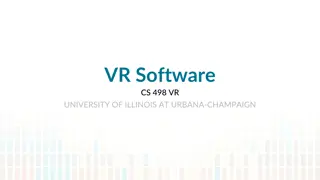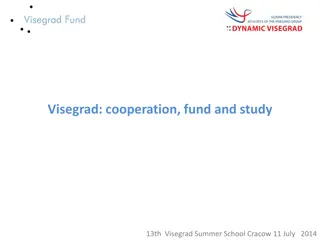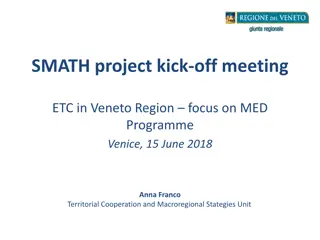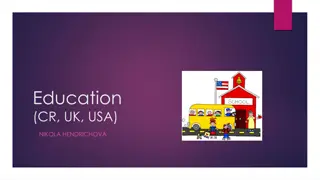Virtual International Cooperation in Upper Secondary Schools: Insights and Challenges
This study explores the shift towards virtual international cooperation in upper secondary schools, highlighting the impact of the COVID-19 pandemic on planned projects. It discusses the current situation, best practices identified through interviews, and statistics related to mobility in VET and upper secondary schools. The findings emphasize the importance of digital methods, staff projects over student projects, and the role of existing networks and partners in facilitating virtual collaborations.
- Virtual collaboration
- Secondary education
- International cooperation
- Digital methods
- Educational projects
Download Presentation

Please find below an Image/Link to download the presentation.
The content on the website is provided AS IS for your information and personal use only. It may not be sold, licensed, or shared on other websites without obtaining consent from the author. Download presentation by click this link. If you encounter any issues during the download, it is possible that the publisher has removed the file from their server.
E N D
Presentation Transcript
Virtual international cooperation and know-how in upper secondary schools Siru Korkala 18/11/2020
Background Questionnaire (current situation) and interviews (best practises) 175 responses, 32 % (80 VET schools (56%), 95 general upper secondary schools (24%)) School principals and international coordinators Internationality has been mostly development projects that include student and teacher mobility 30/09/2024 Finnish National Agency for Education 2
Some statistics Mobility in VET 2019: 10.3 % of annual intake of 16 25-year-olds who started in VET Going down 17 % from previous year Mobility in upper secondary schools, school year 2019-2020: 11.2 % of annual intake Going down 66 % from previous school year 30/09/2024 Finnish National Agency for Education 3
Then everything changed. 100 90 84 What happened to the already planned international work at spring 2020? (%) 80 76 69 70 60 50 40 30 25 18 18 17 20 15 9 10 5 4 4 4 3 3 0 no changes att all everything was cancelled projects with mobility some of the project were carried out virtually all the projects were carried out virtually were cancelled All VET schools General upper secondary schools 30/09/2024 Finnish National Agency for Education 4
Some experiments with virtuality 37 % have tried already Mostly planning the new projects with partners Virtual lesson visits Work meetings and seminars Working with eTwinning 30/09/2024 Finnish National Agency for Education 5
Use of digital methods. Approx. 55 % think their know-how is good Approx. 60 % think that their colleagues know-how is good Skype, Teams, Zoom etc. The know-how in Finland is high Challenge is the motivation 30/09/2024 Finnish National Agency for Education 6
What we have learned Projects with staff are easier to carry out virtually than projects with students Teachers need encouragement in order to increase virtual international work Lots of work, proceed slowly and no mobility Existing networks and partners are very important in virtual projects It s difficult to find new partners just virtually Cultural differences become more apparent in virtual cooperation 30/09/2024 Finnish National Agency for Education 7
Challenges. Project partners various digital skills and equipment How to motivate students to virtual projects Different time zones Often teachers have to participate outside office hours How to find best practises in order to raise motivation? Interviews in November 30/09/2024 Finnish National Agency for Education 8
